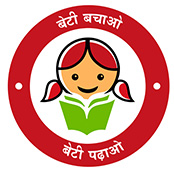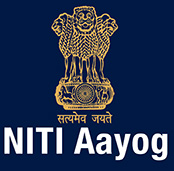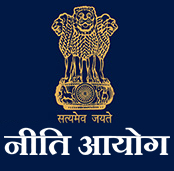- Objectives
-
- To evolve a shared vision of national development priorities, sectors and strategies with the active involvement of States.
- To foster cooperative federalism through structured support initiatives and mechanisms with the States on a continuous basis, recognizing that strong States make a strong nation
- To develop mechanisms to formulate credible plans at the village level and aggregate these progressively at higher levels of government
- To ensure, on areas that are specifically referred to it, that the interests of national security are incorporated in economic strategy and policy.
- To pay special attention to the sections of our society that may be at risk of not benefiting adequately from economic progress.
- To design strategic and long-term policy and programme frameworks and initiatives, and monitor their progress and their efficacy. The lessons learned through monitoring and feedback will be used for making innovative improvements, including necessary mid-course corrections.
- To provide advice and encourage partnerships between key stakeholders and national and international like-minded think tanks, as well as educational and policy research institutions.
- To create a knowledge, innovation and entrepreneurial support system through a collaborative community of national and international experts, practitioners and other partners.
- To offer a platform for the resolution of inter-sectoral and inter departmental issues in order to accelerate the implementation of the development agenda.
- To maintain a state-of-the-art resource centre, be a repository of research on good governance and best practices in sustainable and equitable development as well as help their dissemination to stake-holders.
- To actively monitor and evaluate the implementation of programmes and initiatives, including the identification of the needed resources so as to strengthen the probability of success and scope of delivery.
- To focus on technology upgradation and capacity building for implementation of programmes and initiatives
- To undertake other activities as may be necessary in order to further the execution of the national development agenda, and the objectives mentioned above.
- Features
-
NITI Aayog is developing itself as a state-of-the-art resource centre with the necessary knowledge and skills that will enable it to act with speed, promote research and innovation, provide strategic policy vision for the government, and deal with contingent issues. It is supported by an attached office, Development Monitoring and Evaluation Organisation (DMEO), a flagship initiative, Atal Innovation Mission (AIM) and an autonomous body, National Institute of Labour Economics Research and Development (NILERD).
NITI Aayog’s entire gamut of activities can be divided into four main heads:
- Policy and Programme Framework
- Cooperative Federalism
- Monitoring and Evaluation
- Think Tank, and Knowledge and Innovation Hub
The different verticals, cells, attached and autonomous bodies of NITI provide the requisite coordination and support framework needed to carry out its mandate. The list of verticals and cells is given below:
Divisions:
Administration
Agricultural Policy
Agricultural Technology
Climate Change & Environment
Data Management & Analysis
E-Mobility
Economics & Finance-I (E&F-I)
Economics & Finance-II (E&F-II)
Education
Energy
Governance and Reforms
Governing Council Secretariat and Coordination (GCS & Coordination)
Health & Family Welfare
Industry & Foreign Investment
Infrastructure Connectivity
Integrated Finance Division (IFD)
Law
Managing Urbanisation
Public Finance and Policy Analysis (PFPA)
Public-Private Partnerships
Research and Networking
Rural Development and Panchayati Raj
Science & Technology (S&T)
Security and Strategic Affairs
Security and Strategic Affairs
Services and Economic Intelligence Unit
Social Justice and Empowerment
State Finances & Coordination
Sustainable Development Goals (SDGs)
Tourism & Culture
Water & Land Resources (W&LR)
Women & Child Development (WCD)
Cells:
Circular Economy
Communication
Library
North-East Forum
Voluntary Action
Attached and Autonomous Bodies:
Atal Innovation Mission (AIM)
Development Monitoring and Evaluation Office (DMEO)
National Institute of Labour Economics Research and Development (NILERD)
Objectives and Features
 National Portal Of India
National Portal Of India 


